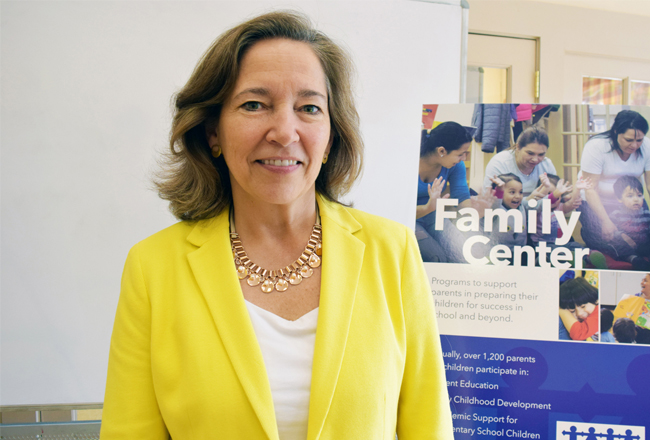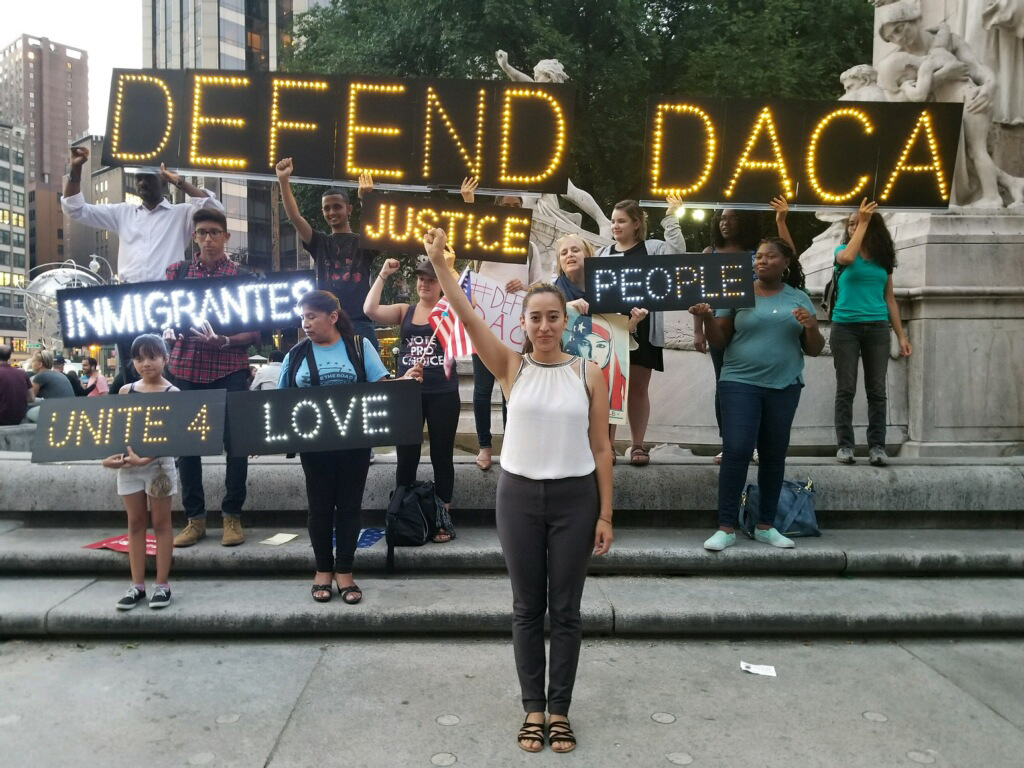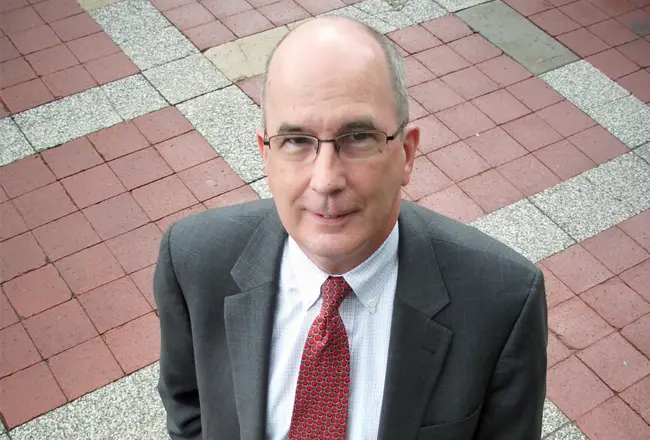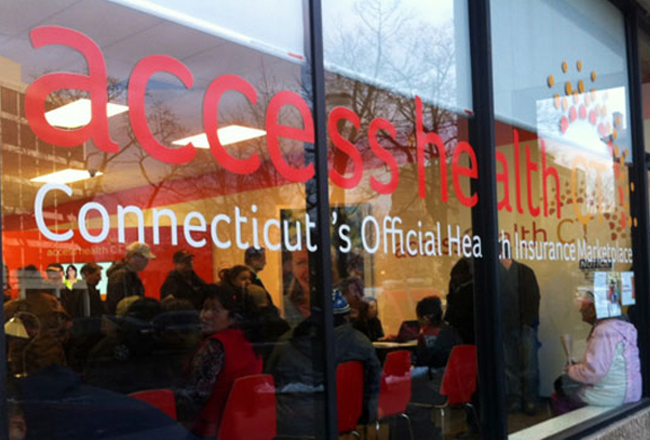In the wake of President Donald Trump”™s recent announcement that he would rescind the Deferred Action for Childhood Arrivals (DACA), an Obama-era program that protects immigrants who were brought to the U.S. illegally as children, Westchester County has already begun to feel the impact of that decision.
“You have a lot of DACA recipients who are obviously confused by the whole process,” said Nelson Madrid, a senior immigration attorney with Pollack, Pollack, Isaac & DeCicco LLP, a Manhattan law firm with offices in Peekskill. “There is a lot of misunderstanding, and a lot of people are scared. They”™re scared because they no longer feel protected.”
Established in 2012, DACA allowed undocumented immigrants who entered the U.S. as children to live and work legally in the U.S. for a renewable period of two years. In order to apply, immigrants had to be younger than 31 on June 15, 2012, and have lived in the states since 2007.
“It does not give anyone legal status,” Madrid clarified. “It merely allows them the opportunity to obtain employment authorization.” Grantees, who are required to have entered the country when they were younger than 16, may also be eligible for a Social Security number and a driver”™s license under the program.
“For most crimes, you have to have intent. I”™ve had clients tell me, ”˜I didn”™t know I was not born in the U.S. until my parents told me,”™” Madrid said. “A 2- or a 4-year-old cannot make an informed decision. That”™s just ridiculous, it”™s absurd. Basically what we”™re doing is punishing these people for the acts of their parents.”
According to data from U.S. Citizenship and Immigration Services, nearly 800,000 recipients have been approved through DACA since its inception five years ago.

“Most DACA recipients came to this country when they were 6, and this is their country,” said Carola Bracco, executive director of Mount Kisco-based Neighbors Link, which focuses on helping immigrants integrate into communities throughout Westchester.
Bracco referenced a national study conducted in August that surveyed 3,063 DACA recipients and found that their average age when they came to the U.S. was 6 ½. The survey was orchestrated by Tom Wong, a professor at the University of California at San Diego, along with Center for American Progress, a liberal think tank, and other immigration advocacy groups.
For many DACA grantees, Bracco said, America is the only home they have ever known.
“They certainly don”™t feel that their native-born country is home. They don”™t feel like they are from the country they were born in, and obviously now, they don”™t feel like they”™re welcome in this country either,” she said.
Jessica Young, supervising attorney for the Westchester Hispanic Coalition, which has represented 140 DACA recipients to date, said the program unlocked economic opportunities for hundreds of thousands of grantees. “The end of the DACA program will have devastating effects on our DACA clients and their families,” she said.
IMPACT ON BUSINESSES AND EDUCATION
A slew of executives from the nation”™s largest companies- from Apple and Amazon to Google and Facebook – have already spoken out against Trump”™s decision to rescind the program.
“Some of (the DACA recipients) are working in businesses and those businesses have invested in them to train them,” Bracco said. “If you”™re a company and you have people working for you that can work up until their DACA expires, how difficult is it for your employees to maintain their high productivity level while they”™re living in this limbo and they don”™t know when it”™s going to end?”
In his remarks on the rescinding of the program, Attorney General Jeff Sessions said it “denied jobs to hundreds of thousands of Americans by allowing those same jobs to go to illegal aliens.”
“A lot of these kids, they”™re not taking jobs,” Madrid countered. “They just want an education.”
Because undocumented students are unable to work or qualify for financial aid, DACA was used as a tool by many to help them attend college.
“We have lots of students who, when they didn”™t have DACA, they weren”™t going to be able to afford college,” Bracco said, “but when DACA was implemented, that allowed them to get work and be able to afford college.”


Taslim Tavarez Garcia, a student at Pace University, is one such student. Though she and her family have since been granted legal status, DACA enabled her to enter college in the U.S. Now Garcia hopes to attend law school and become an immigration attorney in order to help those who may be facing similar situations.
“I want to be known as someone who was able to create change for immigrants, something that is so interconnected with my personal background,” she said. “It”™s about really trying to help them overcome the barriers that prevent them from becoming residents or citizens.”
For many who work hands-on with immigrant communities, another critical issue is that those who applied for the DACA program “trusted the government with all their confidential information,” Bracco said. “So now the government has access to that information, and that”™s a significant betrayal if that information gets used against them at some point when they no longer have their DACA status.”
That information required during the DACA application process ranged from where the recipients live and work to a list of their family members.
“Something I always advise my clients is, anytime you fill out any paperwork with immigration, you are putting yourself on the radar,” Madrid said. “The bottom line is, obviously immigration (Immigration and Customs Enforcement) knows where you are, knows who your family members are. They can, unfortunately, do what they want to do with that information.”
SURVIVOR”™S GUILT
Though the program is scheduled to be phased out on March 5 next year, DACA recipients whose eligibility expires prior to that date have the option of renewing their two-year status. However, for the renewal to be approved, they must submit their paperwork by Oct. 5.
“Some DACA recipients who fit into that March 5 deadline feel survivor”™s guilt,” Bracco said. “A sibling or a best friend doesn”™t get to renew, but they do.”
Bracco said that many of those seeking renewals will be rushing to complete their application in the coming weeks and will likely require assistance from organizations like Neighbors Link. The nonprofit has already set up a number of information sessions and consultations to assist those hoping to renew their status.
“It”™s a lot of work in a short amount of time,” she said. “It”™s a huge strain on the nonprofit sector to help people do these DACA renewals.”
STATES SUE TO SAVE DACA
Following the Trump administration”™s announcement, New York Attorney General Eric Schneiderman and Connecticut Attorney General George Jepsen joined a coalition of 15 states and the District of Columbia that is suing to stop the administration from dismantling the program. Four other states have announced similar suits in the weeks since.
Schneiderman said the program”™s end would have devastating effects on the 42,000 DACA grantees in New York State. “It”™s clear that President Trump”™s DACA repeal would cause huge economic harm to New York and that it”™s driven by President Trump”™s personal anti-Mexican bias,” he said.
Since his announcement, Trump has called on Congress to pass a replacement for the program in the next six months prior to its end date in March.
“Our DACA clients are worried about the future and about their work permits expiring,” said Young at the Westchester Hispanic Coalition. “They are also hopeful that our elected representatives will act on their behalf.”
Bracco agreed that “we have to put a lot of pressure on Congress to do something.”
“But I think it”™s going to be an incredible challenge,” she said.
In the meantime, many who work closely with the immigrant community are left to do their best to quell the fear and tension that have arisen in recent months.
“Many people usually feel a sense of security or feel reassured after they meet with their attorney,” Madrid said. “It”™s very difficult for me to give any a sense of security or reassurance at this moment in time.”



















